Modern cars are far less likely to overheat than older vehicles, but it can still happen.
Engines normally overheat in the summer months, but an engine overheating can potentially happen at any time of year.
What are signs of a car overheating?
You may have a problem with your car overheating if your temperature indicator starts to rise, or a malfunction light flicks on.
You may also see vapour emerging from the bonnet, or notice a smell from the engine.
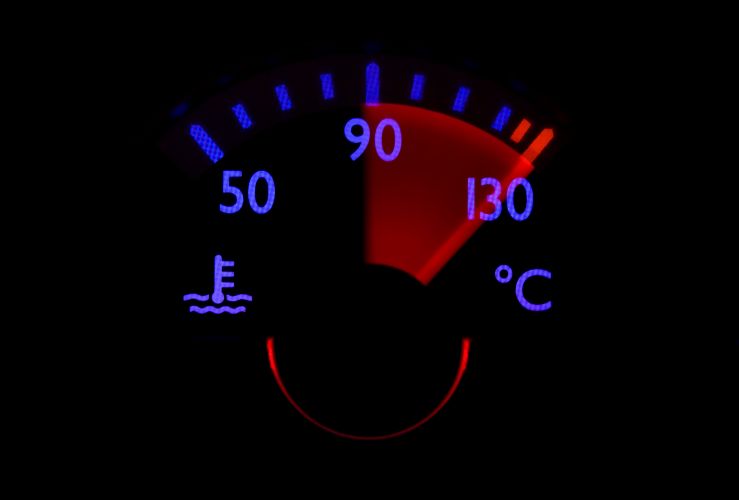
What do I do if my car is overheating?
It’s important to fix the issue of your car overheating quickly, as overheating can badly damage your engine.
In the instance that your car is overheating, to reduce the load on your car's engine, immediately turn off the air-conditioning and open your windows.
If this doesn't work, turn on your heater and blower, which will transfer heat from the engine to the cabin. As you might expect, doing this on a hot summer's day will make the cabin rather uncomfortable.
What should I do if my car overheats in traffic?
If your car overheats in traffic, change to neutral and rev the engine. This will operate the water pump and increase the fan speed, which will suck more water and air through the radiator, cooling the engine.
Avoid using your brakes unnecessarily, as this increases drag on the engine
What should I do if I’m worried about my engine boiling over?
If your car is overheating you're worried the engine will boil over, pull up in a safe place, raise the bonnet and wait for the engine to cool down.
Call your roadside assistance provider and await help.
Don’t have breakdown cover in place? Don’t worry, you can get an instant quote online for affordable and reliable cover from Start Rescue.
Naturally, if the issue of a car engine overheating does happen to you, you’ll want to know ‘why is my engine overheating?’
Why is my car overheating?
If you are wondering 'why is my car overheating?', it could be a simple fix. One common reason for an overheated engine is low levels of water and coolant.
Open the radiator cap and check inside; if it's dry, you need to add more fluid to help stop your car engine overheating.
How do you fix a car that overheats?
For most motorists, taking an overheated car to the nearest garage is the easiest way to get back on the road.
However, there are some steps you can take yourself to fix a car that overheats.
How to fix an overheating car yourself
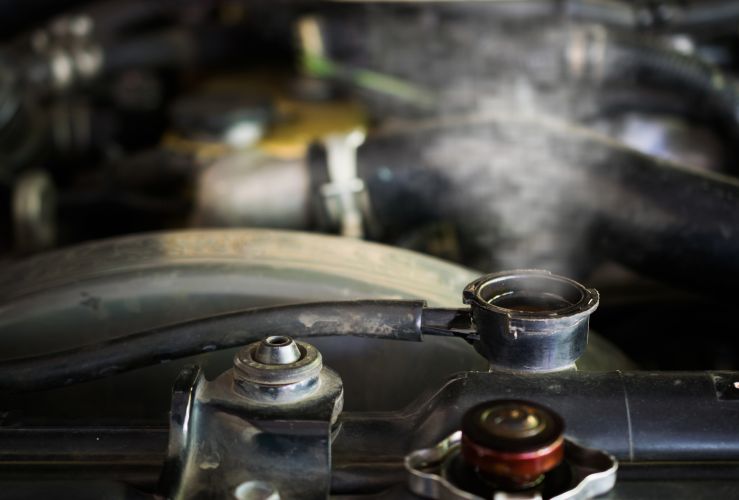
Pressure test the radiator system for leaks
You can buy a pressure leak testing kit affordably.
Attach it to the radiator, then pump up the pressure. If water comes out of the holes in the radiator, you have a leak.
To find a less obvious radiator leak, pump up the tester and watch gauge; if it starts to move down, there's a leak.
No leaks? Check your radiator cap
Radiator caps are supposed to hold pressure in. But if they are worn and rusty, you may need a new one.
You could pressure test the cap with a special system, but they are so cheap you're probably better off buying a new one.
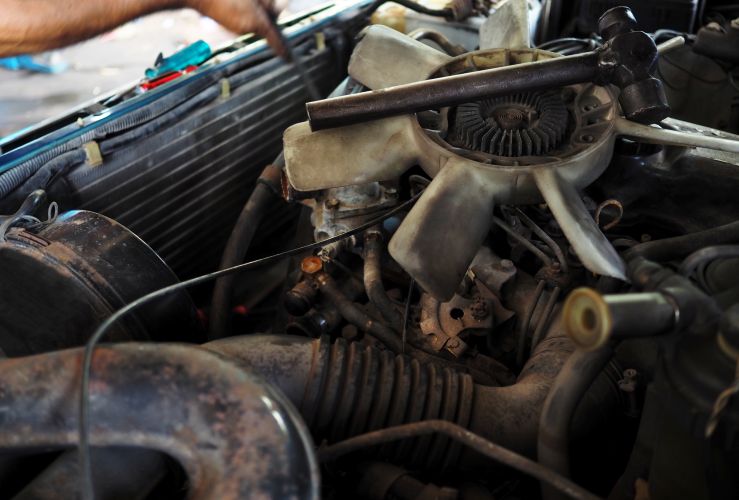
Check your cooling fan
If the problem of your car overheating persists, check your cooling fan.
Turn it on full blast, then check under the bonnet to see if the fans are working. If they are not, there won’t be enough air being sucked into the radiator, causing the engine to overheat.
The most likely reason for a fault is that the motor has burnt out.
You can check the fan motors with a jumper wire: attach one end to the positive cable on the battery and the other on the red cable that feeds the motor you're testing. If the fan fails to spin, the motor is burnt out.
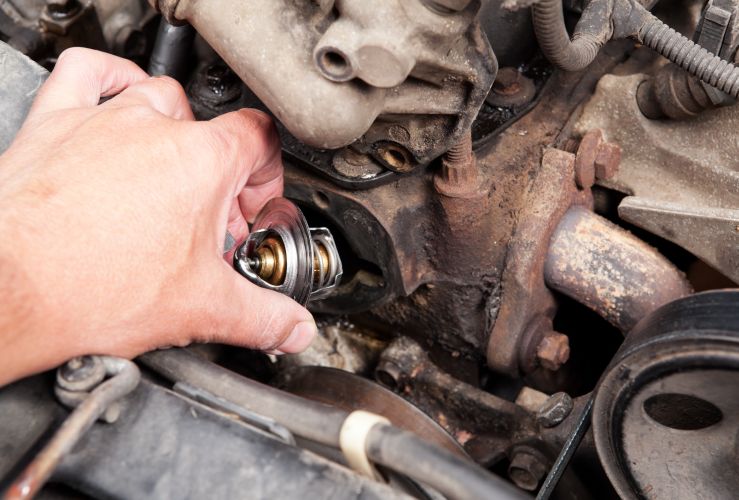
If the cooling fans are operating normally, you may have a faulty thermostat.
These components close as the engine heats and open when the engine is very hot. Sometimes thermostats get stuck.
Most thermostats can be located by following the radiator hose to the thermostat housing. This has a bolt on the top and the bottom; simply pull the thermostat out and replace it with a new one.
Why is my car overheating still?
With luck, one of the above components caused your car's engine to overheat.
If the problem persists, and you’re still wondering why is my car overheating, there are two likely issues as to why you are experiencing your engine overheating - neither of which is cheap to remedy.
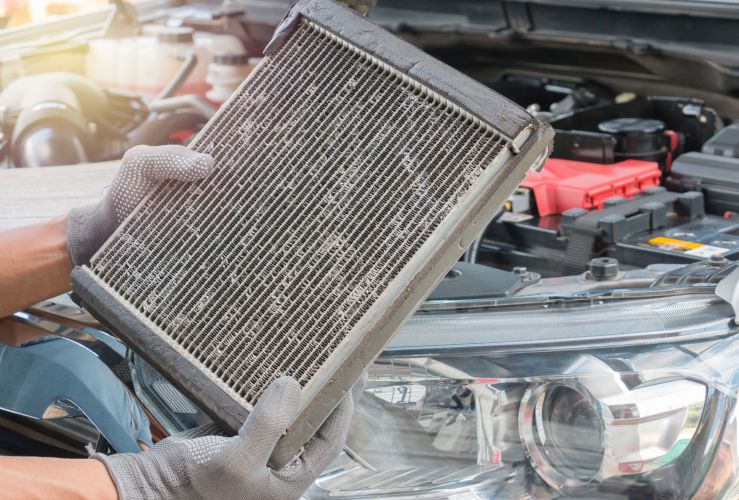
Faulty radiator: Radiator overheating
When a radiator gets very old, it may no longer be able to dissipate heat.
Modern units are manufactured from plastic and aluminium, the latter of which can corrode over time, meaning the radiator no longer dissipates heat.
The radiator may not leak and otherwise look to be in good condition, but if it your radiator is overheating and cannot remove heat, your engine will suffer.
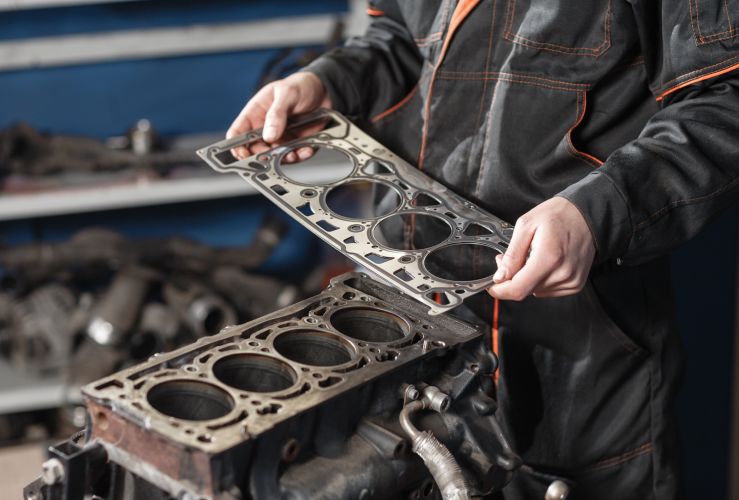
Head gasket starting to blow
While replacing your radiator is costly, fixing a faulty head gasket is even more so.
To fix a faulty head gasket, the engine will need to be stripped down, rebuilt and reinstalled, which may cost up to £1,000 - more than some cars are worth in their entirety.
Before getting your engine stripped down, it's sensible to carry out a combustion leak test so you know for sure if a leaking head gasket is why your car is overheating.
This involves adding a special blue liquid to a plastic tube, which is attached to the radiator. The engine is turned over and if the liquid turns yellow, you have a head gasket leak.
Your local garage will perform this test before suggesting the engine is stripped down.




